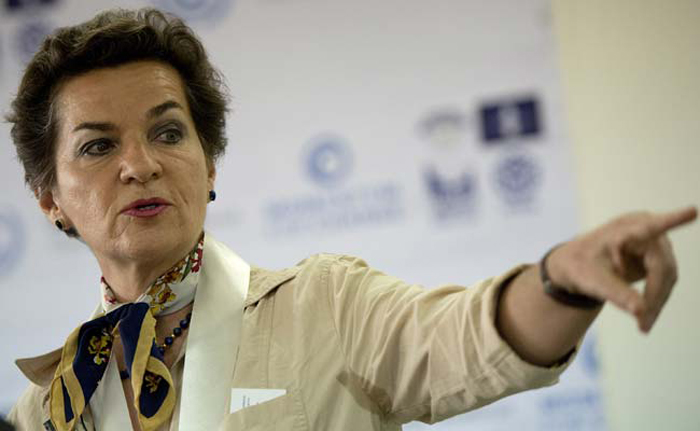Climate chief Christiana Figueres repeated her warning that the plans would not succeed in limiting a temperature rise to two degrees (3.6 Fahrenheit) above pre-industrial levels, a UN-blessed goal that scientists say will spare the planet the worst consequences of warming.
But Figueres, executive secretary of the UN Framework Convention on Climate Change, said that there has been "improvement" since nations started making plans, of which she said at least 64 have been sent in.
The action plans "have actually brought the trajectory from where we were a few years ago -- which was trending toward four to five degrees," she told reporters at the UN headquarters.
"We`re now down into the three-degrees range," she said.
Figueres said that the trajectory showed that countries needed to focus for the Paris meeting on the timing of future actions, and also to fill a shortage in funding to poor countries expected to be hit hardest by droughts and other effects of climate change.
"The timing of this is fundamental. Even if we`re able to get to zero net, which is restoring the ecological balance, if we do it too late, we`re not protecting the most vulnerable," she said.
Figueres was speaking at the announcement of awards by the UN Development Program to 21 initiatives by indigenous people credited with fighting climate change or otherwise protecting nature.
Actor and activist Alec Baldwin said that the efforts showed how local communities, many facing tough odds, can help achieve the global goal of fighting climate change.
"We recognize that Paris is not mission impossible; it is mission critical," he said.
The winners of the Equator Prize, which will each reach receive $10,000 and visit Paris for the UN conference, included a group of Kayapo indigenous people in Brazil who used video cameras to document illegal logging on some 2.5 million hectares (6.2 million acres) of forest.
Other recipients included the Yunnan Green Watershed Management Research and Promotion Center in China that improved water access following a dam project and several preservation groups in Indonesia.
More about:
















































